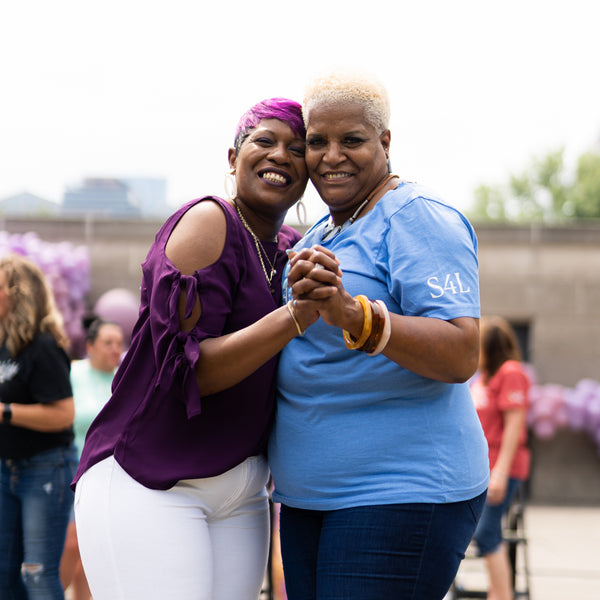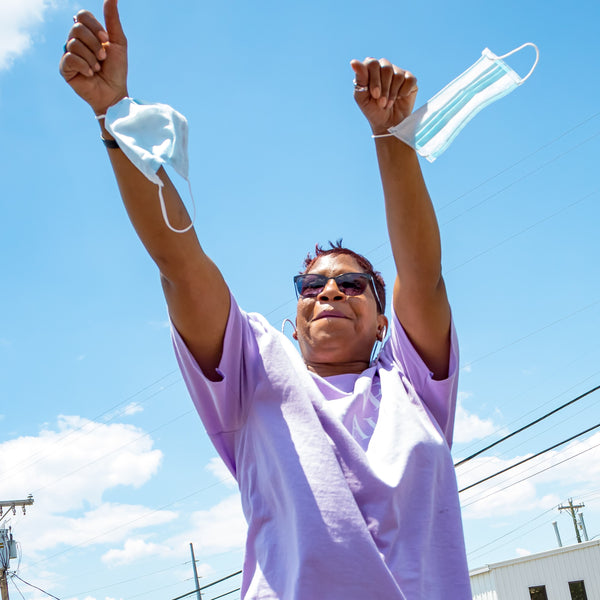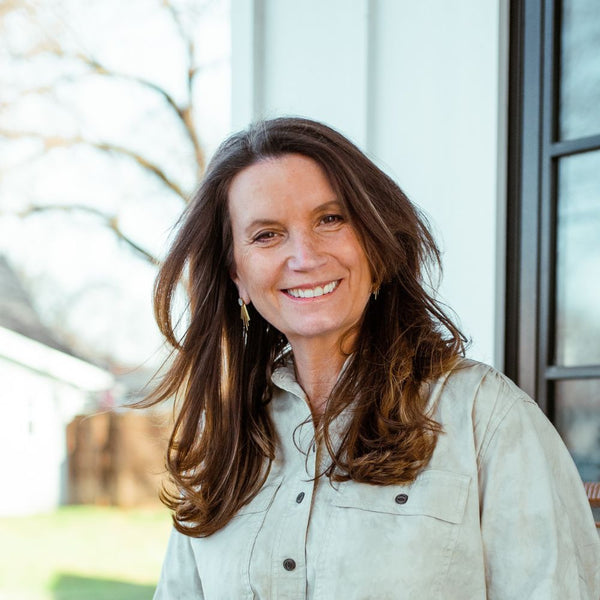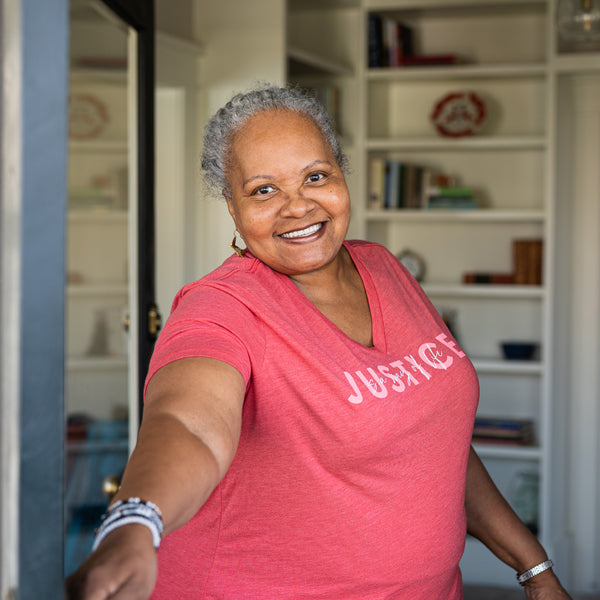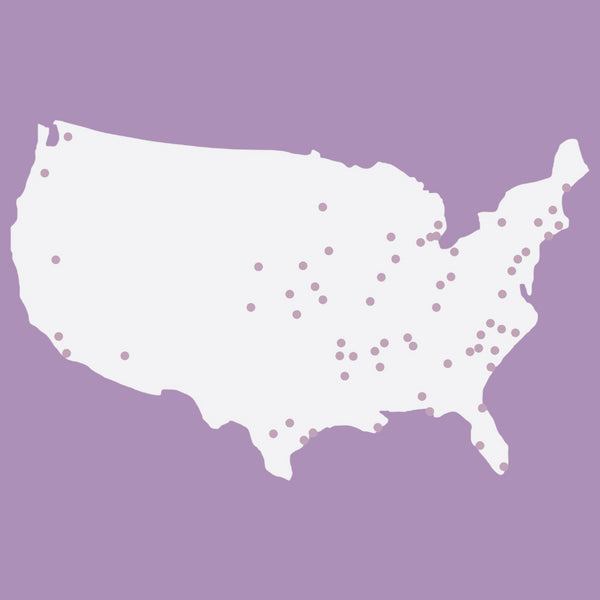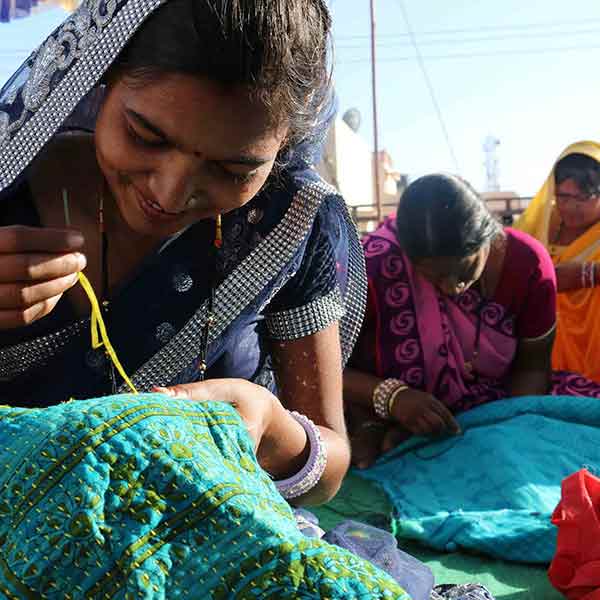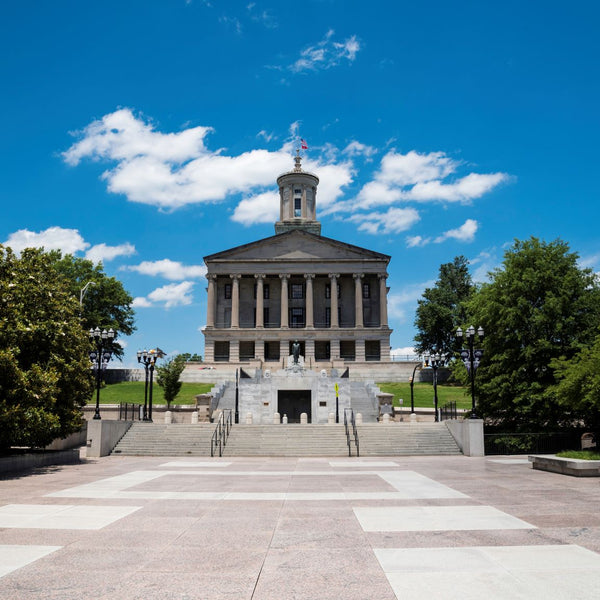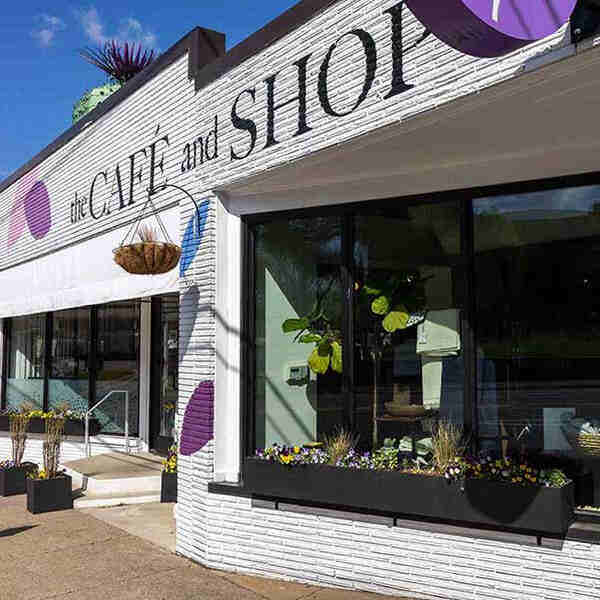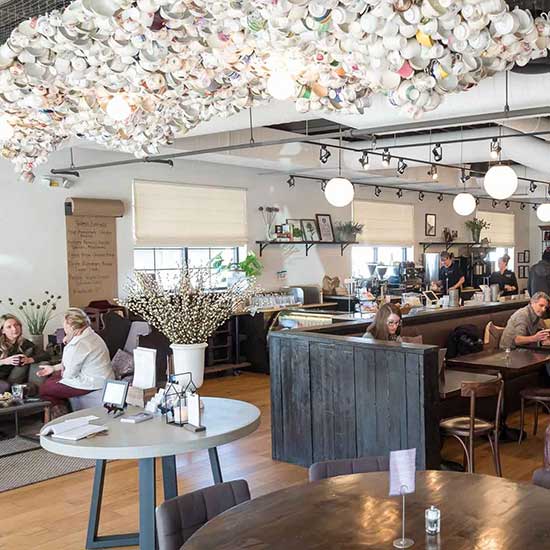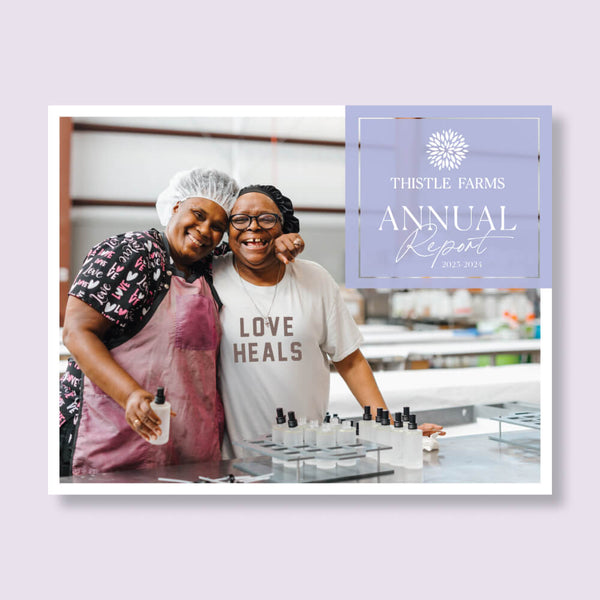Healing Hidden Wounds: PTSD in Women Survivors of Trafficking & Prostitution
June is PTSD Awareness Month, an opportunity to gain a better understanding and awareness of how post-traumatic stress disorder (PTSD) intersects with the experiences of the women who come through Thistle Farms' Residential Program.
While it is most often associated with combat veterans or survivors of a one-time significant trauma, such as a serious car accident or mass shootings, PTSD is a daily reality for many women who endure their own battles of surviving commercial sexual exploitation, homelessness, and incarceration.
Understanding PTSD and Complex PTSD
At its most basic, PTSD is a mental health condition triggered by experiencing or witnessing a traumatic event, which is one that is emotionally disturbing or life-threatening. Some symptoms are flashbacks, nightmares, severe anxiety, and emotional numbness.
But for survivors of trafficking and prostitution, trauma is experienced through prolonged, repeated exposures to traumatic circumstances, often over the course of many years. This can lead to Complex PTSD (C-PTSD), which arises from repeated or long-term trauma and affects a person's sense of safety, identity, and trust.
Think of it as having a length of rope that you are holding onto to keep from falling: Whereas PTSD is best understood as someone suddenly and unexpected cutting that rope so that you fall. C-PTSD is not a singular, life-shattering moment so much as a rope that frays one strand at a time, each micro-trauma slowly wearing down your resilience and sense of safety until the whole thing snaps.
The American Psychological Association highlights that more than half of all women will experience at least one traumatic event in their lifetime, with women being twice as likely as men to develop PTSD. Factors contributing to this disparity include higher rates of intimate partner violence, such as sexual assault and domestic violence experienced by women.
The Overlapping Traumas
This is the reality for many women not only in the Thistle Farms community, but throughout the world. One study reports up to 61% of trafficking survivors expressing symptoms of PTSD or C-PTSD such as impulsivity, dysregulation, changes in interpersonal relationships, and more as a result of the trauma they’ve experienced due to exploitation.
Survivors of human trafficking and prostitution frequently endure various and repeated forms of interpersonal and intimate partner violence like sexual assault and domestic abuse. This is often referred to as revictimization. Trafficked individuals report enduring assault, coercion, threats of harm to themselves and their families, and severely restricted freedom. Because women survivors often experience a slow, cumulative erosion of self, rather than a single traumatic rupture these shared traits with physical and emotional abuse experienced in domestic violence situations increases the risk of PTSD. Women trafficked for sexual exploitation also commonly experienced violence prior to being exploited, which may have contributed to their vulnerability to being trafficked.
On top of that, instances of housing insecurity and homelessness can compound the traumas experienced by those in commercial sexual exploitation. According to the National Health Care for the Homeless Council, trauma—whether physical, sexual, or emotional—is both a cause and a consequence of homelessness. As the National Alliance to End Homelessness emphasizes, there is a clear intersection between human trafficking and homelessness, with housing instability both increasing vulnerability to trafficking and creating barriers to recovery. The ongoing stress of daily survival on the streets such as exposure to violence, lack of safety, and disrupted sleep only further contributes to the chronic stress that can foster PTSD.
Incarceration is also a frequent experience for trafficked and prostituted women, with the prison environment being one that retraumatizes individuals through isolation, surveillance, and loss of autonomy. Women entering prison often have high Adverse Childhood Experiences (ACE) scores, which is also seen in those who are trafficked and prostituted. Incarceration can exacerbate existing mental health issues, leading to higher rates of recidivism among formerly incarcerated women due to the prevalence of childhood trauma, unaddressed post-traumatic stress disorders and mental health needs, substance abuse that either led to or was caused by commercial sexual exploitation - all of which further complicates successful reentry into the community.
These compounded traumas can lead to complex patterns of hypervigilance, emotional shutdown, substance use, and deep-rooted distrust - all of which can mask underlying PTSD or make the situation even worse.
Breaking the Cycle: The Thistle Farms Residential Program
Healing from PTSD requires factors and resources such as clinical treatment, community, stability, and long-term support to ensure it is not detrimental to one's ability to interact with the world after they have left their traumatic past.
At Thistle Farms, our Residential Program recognizes the realities of PTSD in the women who enter the program, and seeks to provide the safety, support, and opportunity needed to rebuild and re-establish oneself in a world where past traumas may re-appear, but don't have to derail progress entirely.
Our Residential Program seeks to address a survivor’s most basic needs first: housing, safety, food, clothing. Those necessities are the foundation from which healing and progress can grow. The program focuses the first year on healing inwardly by providing psychoeducation and support groups as well as individual therapy. The groups focus on a variety of healing modalities that promote mental, emotional, and physical wellbeing, such as Brain Science, Dialectical Behavior Therapy, Relapse Prevention, Creative Writing, and Women’s Empowerment.
We partner with community organizations like the Sexual Assault Center for individual therapy, The Next Door for drug and alcohol treatment, Mental Health Cooperative and Centerstone for mental health care, Nashville General Hospital, Meharry, and Ascension for primary care, and more to ensure the resources and support needed to respond to the stressors that can exacerbate PTSD are at hand.
By addressing the holistic needs of survivors, Thistle Farms aims to break the cycle of trauma and support women on their journey to healing.
How Can You Help?
- Learn: Listen to the voices of survivors and those with lived experience to destigmatize the issue.
- Support: Donate to programs like Thistle Farms that provide trauma-informed care.
- Advocate: Push for systems that recognize trauma, and help us advocate for compassionate policies in housing, health, and criminal justice.
